Christians and Muslims in Uganda are helping to break the silence on menstruation and remove stigma and shame through the first programme to work with faith communities in this way.
Our Dignity for Girls programme has reached 31,844 people in Uganda with awareness raising on menstrual hygiene management (MHM) – more than four times our original target of 7,232 people. It is the first menstrual health programme to work with three major faith groups in Uganda: the Catholic Church, Church of Uganda and Uganda Muslim Supreme Council.
The aim is to keep more girls in education by helping them manage their periods with confidence and dignity. The Dignity for Girls programme has provided 1,788 girls in 24 Anglican, Catholic and Muslim primary schools with education on puberty and menstruation plus packs of reusable sanitary pads, knickers and soap.
In total, more than 31,844 people have been reached through awareness raising activities
and menstrual hygiene management (MHM) training, including 872 parents, 350 faith leaders and faith education chiefs and 287 teachers.
Asima Evers, 14, who is in Primary Six at Kitoba Primary School in Hoima District in Western Uganda, told us: 'I learned how a girl can manage her menstruation. And they told us that menstruation is not a disease but is normal and natural for everyone. I feel good! At this time I feel so good!'
Our Dignity for Girls programme has reached 31,844 people in Uganda with awareness raising on menstrual hygiene management (MHM) – more than four times our original target of 7,232 people. It is the first menstrual health programme to work with three major faith groups in Uganda: the Catholic Church, Church of Uganda and Uganda Muslim Supreme Council.
The aim is to keep more girls in education by helping them manage their periods with confidence and dignity. The Dignity for Girls programme has provided 1,788 girls in 24 Anglican, Catholic and Muslim primary schools with education on puberty and menstruation plus packs of reusable sanitary pads, knickers and soap.
In total, more than 31,844 people have been reached through awareness raising activities
and menstrual hygiene management (MHM) training, including 872 parents, 350 faith leaders and faith education chiefs and 287 teachers.
Asima Evers, 14, who is in Primary Six at Kitoba Primary School in Hoima District in Western Uganda, told us: 'I learned how a girl can manage her menstruation. And they told us that menstruation is not a disease but is normal and natural for everyone. I feel good! At this time I feel so good!'
Evaluation showed that:
Studies indicate that half of women and girls in many developing countries are forced to use rags, leaves or paper to manage their periods. Difficulty managing periods is now recognised as a major reason why girls miss school or even drop out altogether.
Girls who drop out of school early are at high risk of teenage pregnancy and child marriage and a very poor future. In Uganda, 23% of girls aged 15-19 have already started bearing children.
Faith groups are the biggest sector of civil society with 85% of Ugandans describing themselves as Christian and 14% as Muslim. They run half of schools in Uganda so persuading them to take menstrual health seriously has the potential to benefit millions of Ugandan girls.
As well as awareness raising and training, Dignity for Girls has also improved school latrines, built hand washing facilities and girls' changing rooms and installed rainwater harvesting tanks. Studies show that the very poor condition of many school toilets and lack of water for washing are a major deterrent to menstruating girls.
- 89.22% of menstruating girls reported feeling confident about being able to manage their menstruation.
- Just 10.55% of girls reported missing school due to their period, compared to 67.72% at baseline.
- And 99.01% of women and 88.16% of men taking part in awareness raising activities said they have a more positive attitude towards menstruation as a result.
Studies indicate that half of women and girls in many developing countries are forced to use rags, leaves or paper to manage their periods. Difficulty managing periods is now recognised as a major reason why girls miss school or even drop out altogether.
Girls who drop out of school early are at high risk of teenage pregnancy and child marriage and a very poor future. In Uganda, 23% of girls aged 15-19 have already started bearing children.
Faith groups are the biggest sector of civil society with 85% of Ugandans describing themselves as Christian and 14% as Muslim. They run half of schools in Uganda so persuading them to take menstrual health seriously has the potential to benefit millions of Ugandan girls.
As well as awareness raising and training, Dignity for Girls has also improved school latrines, built hand washing facilities and girls' changing rooms and installed rainwater harvesting tanks. Studies show that the very poor condition of many school toilets and lack of water for washing are a major deterrent to menstruating girls.
It is teaching the girls – and sometimes the boys too – how to make reusable sanitary pads. When asked why he wanted to take part, Ssekyanzi Yunus, 13, in Primary 6 at Kasana UMEA Primary School, says: 'I need to know about these things because one day I will be a father.'
At the headquarters’ level, the three faiths have been considering how to make their schools more girl-friendly. The Church of Uganda has just approved an MHM policy for all its schools, and the Uganda Muslim Supreme Council has produced a draft policy – the first time either faith group has considered MHM before.
The Muslim community has introduced a day in the annual Muslim calendar to promote good MHM and celebrate women and girls. Dignity Day will be held every last Friday in June. It was launched in the National Mosque by His Eminence the Mufti of Uganda in front of 4,000 men and 600 women. His speech was broadcast across Uganda.
Dignity Day organiser Hajjat Sebyala Aphwa says: ‘I cannot tell you how amazing it was to hear the Mufti talk about this subject in the mosque – before, this was a no-go area and you would never talk about it in the mosque.’
And a Catholic bishop has been touring Jinja Diocese with a pack of sanitary pads, asking his congregations: ‘Do you know what this is? Do you realise that you are supposed to provide these for your daughters?'
These are just some of the extraordinary impacts that we've achieved by working with faith groups to raise awareness of girls' menstrual health.
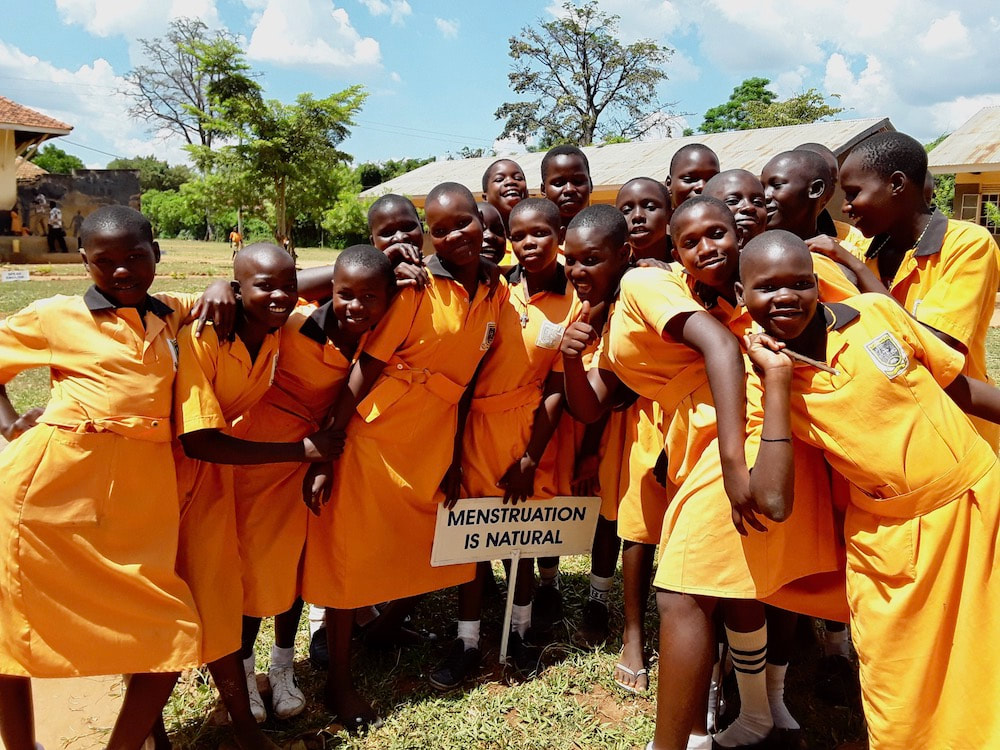
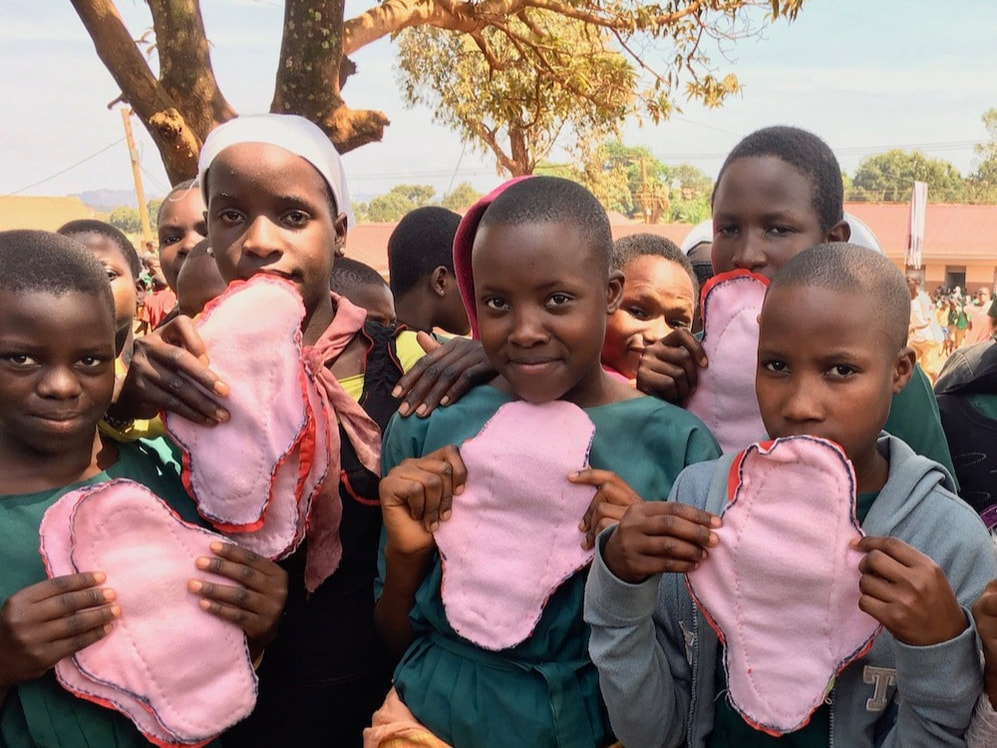
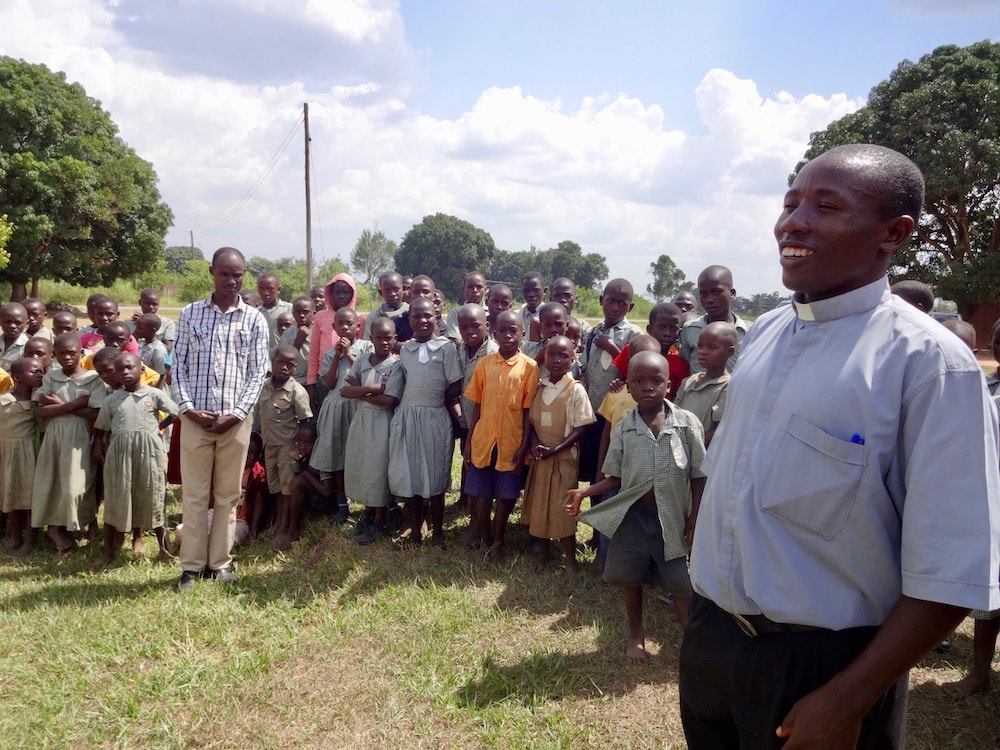
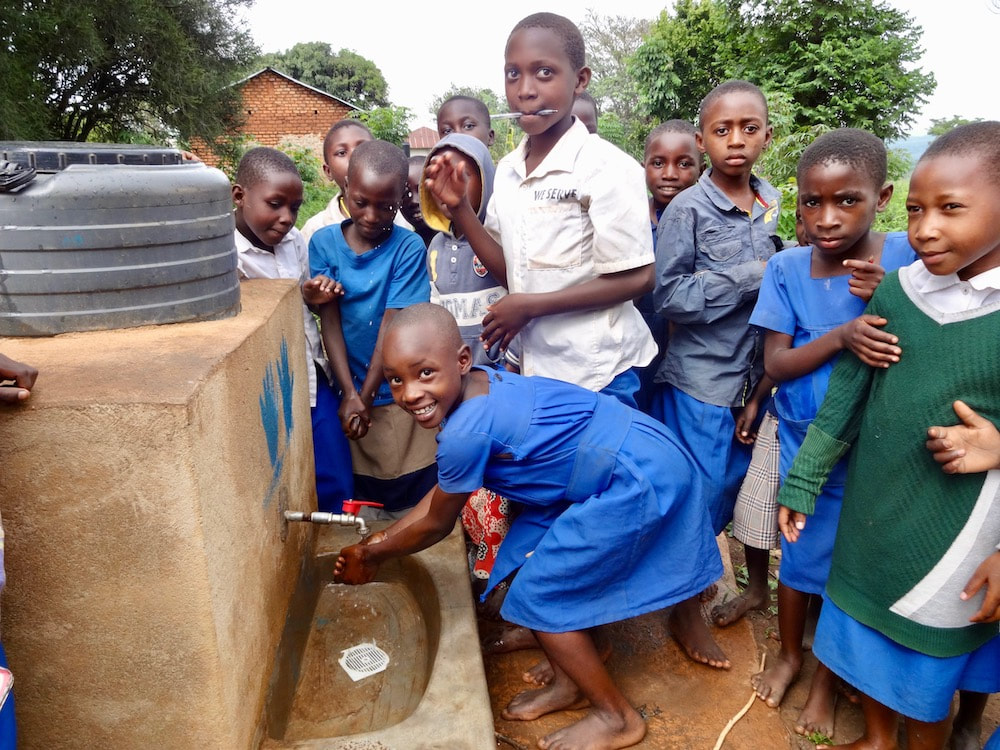
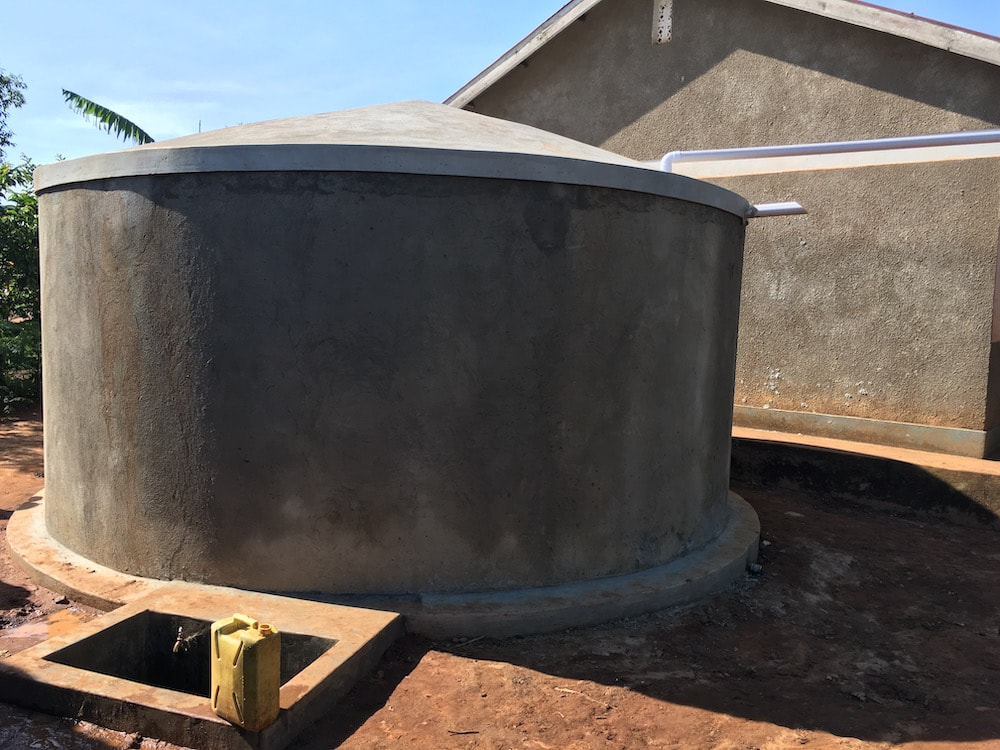
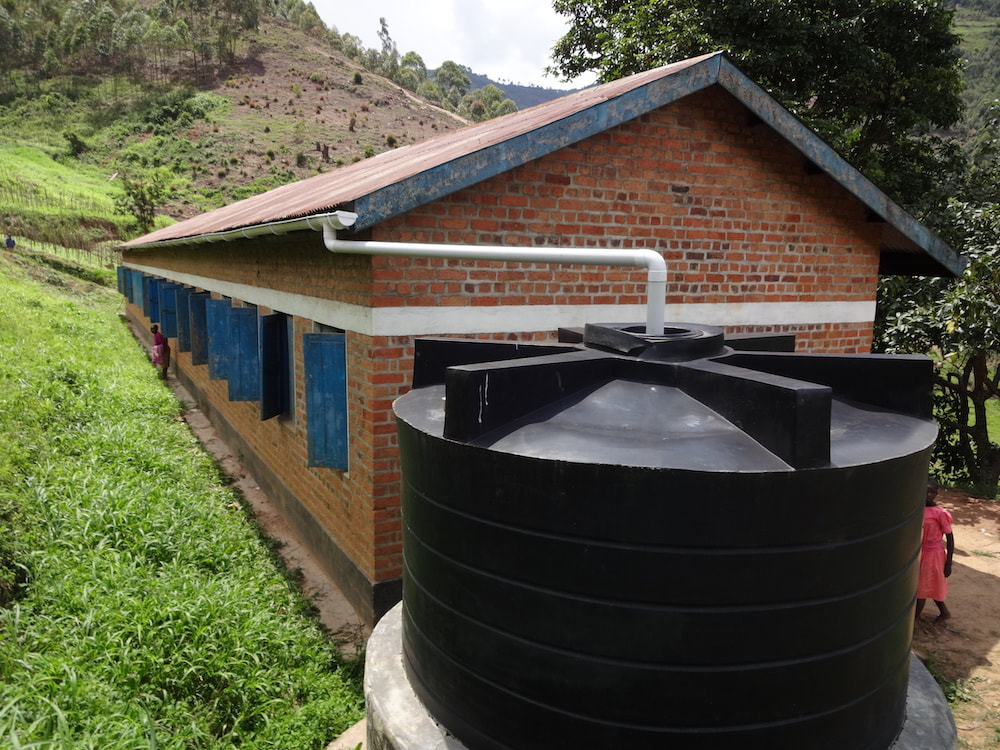
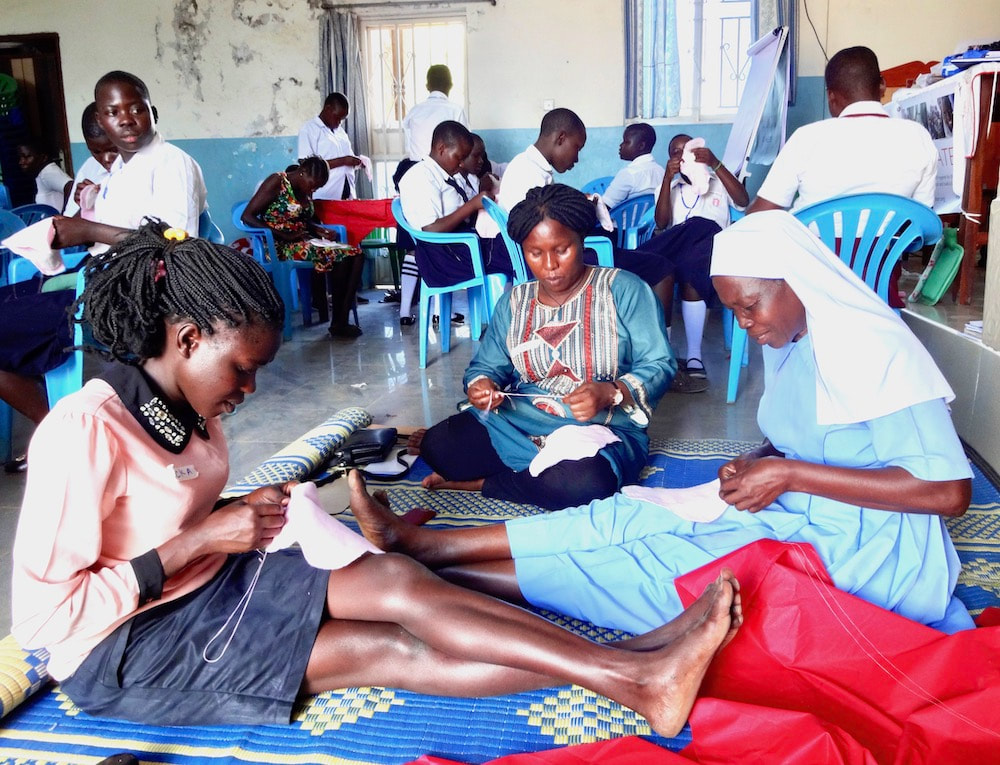
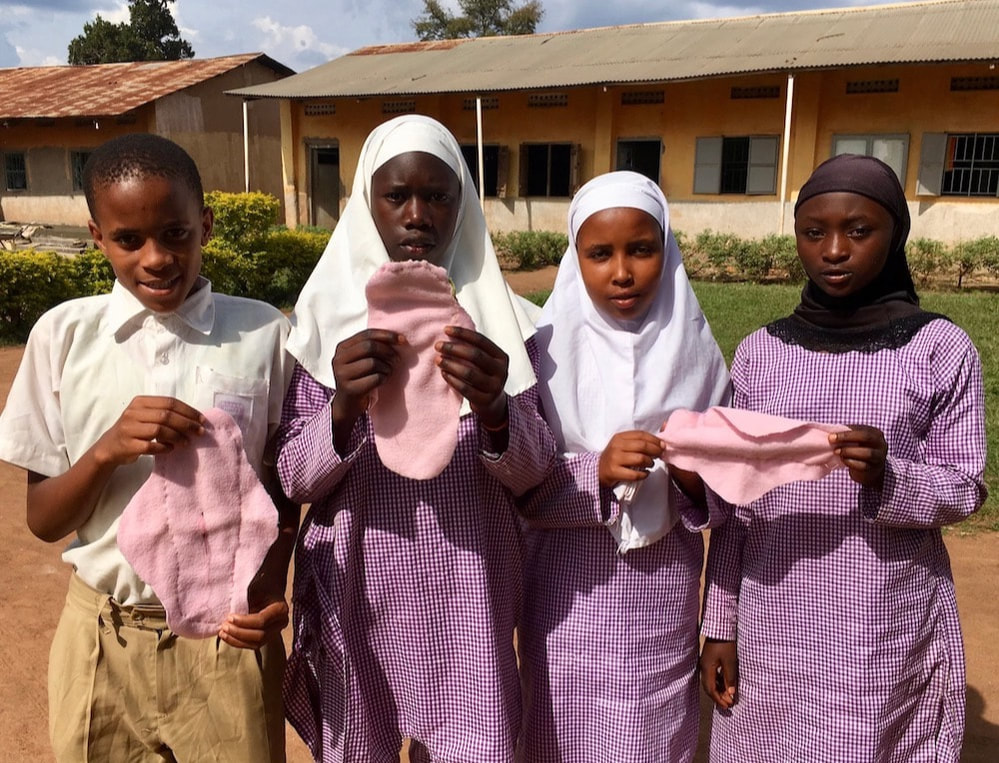
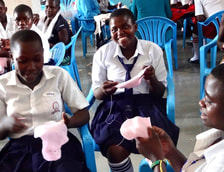
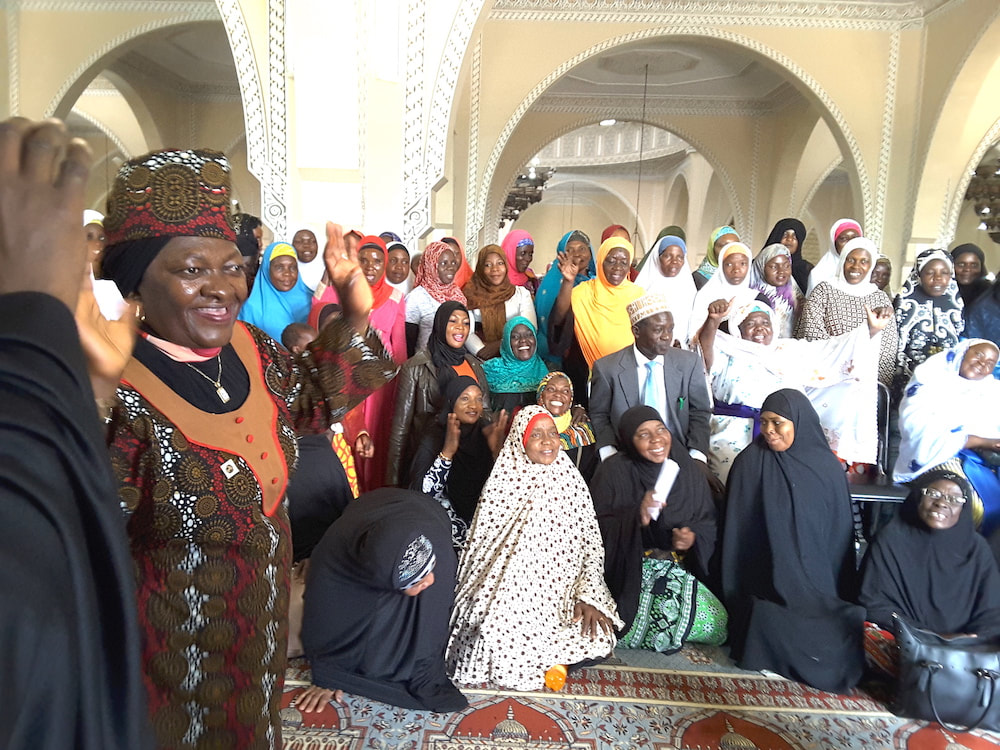
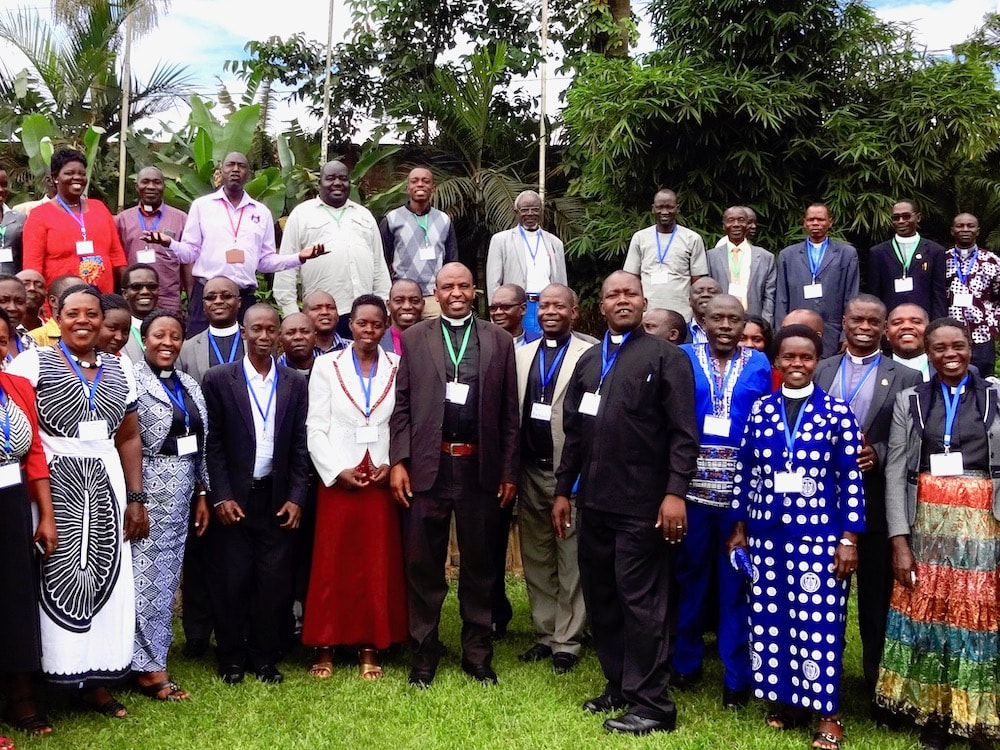
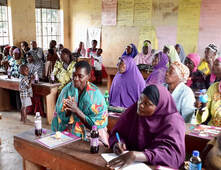
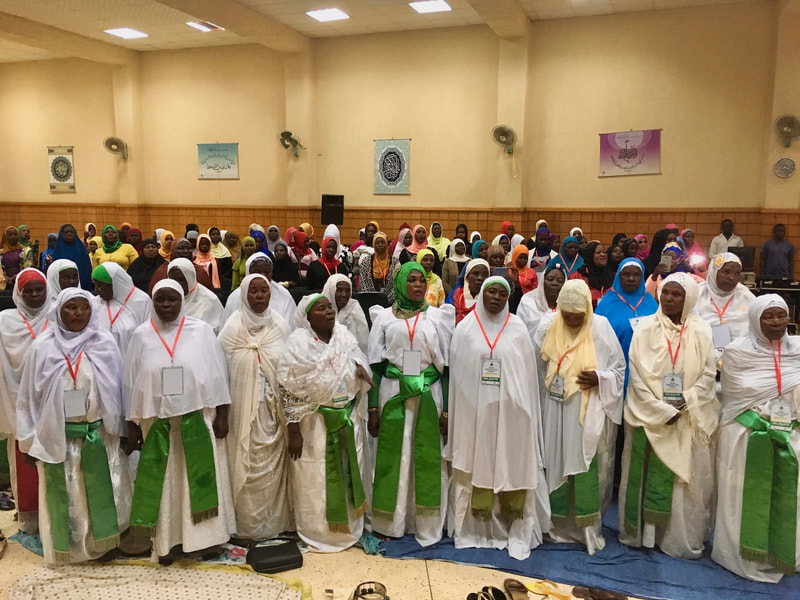
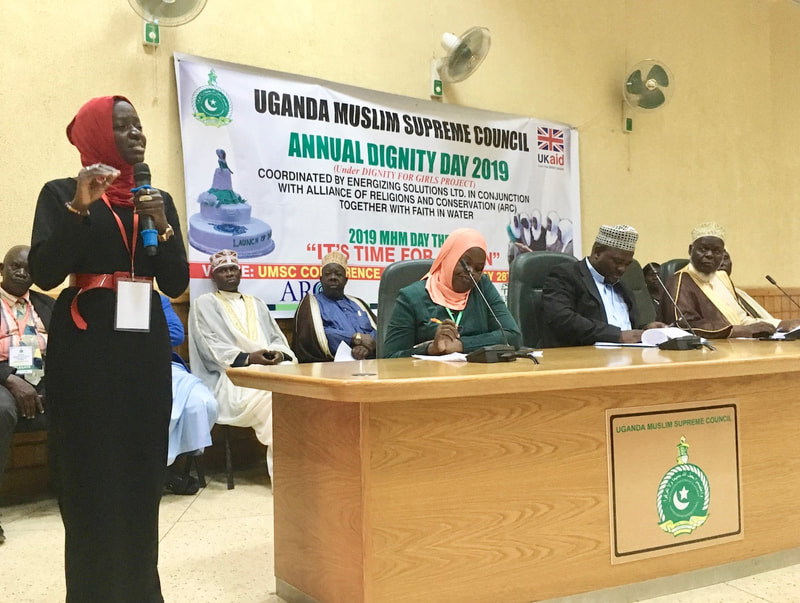
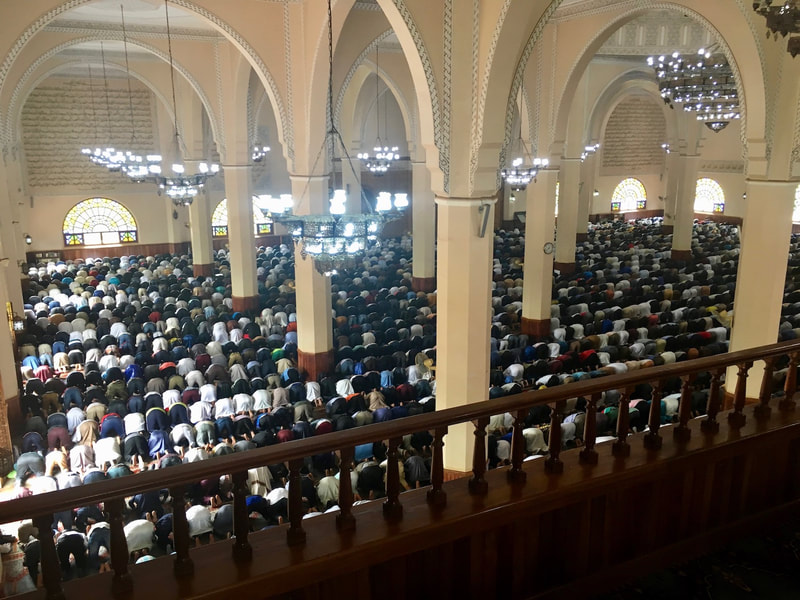
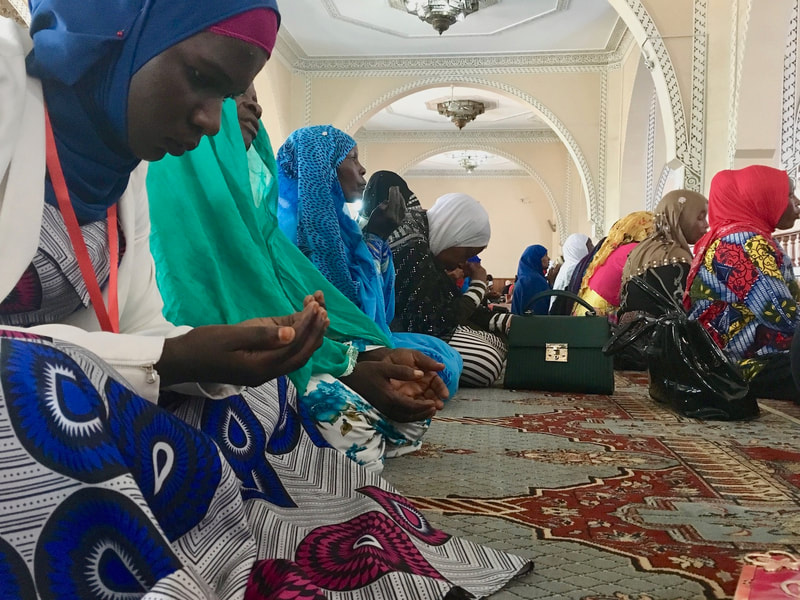
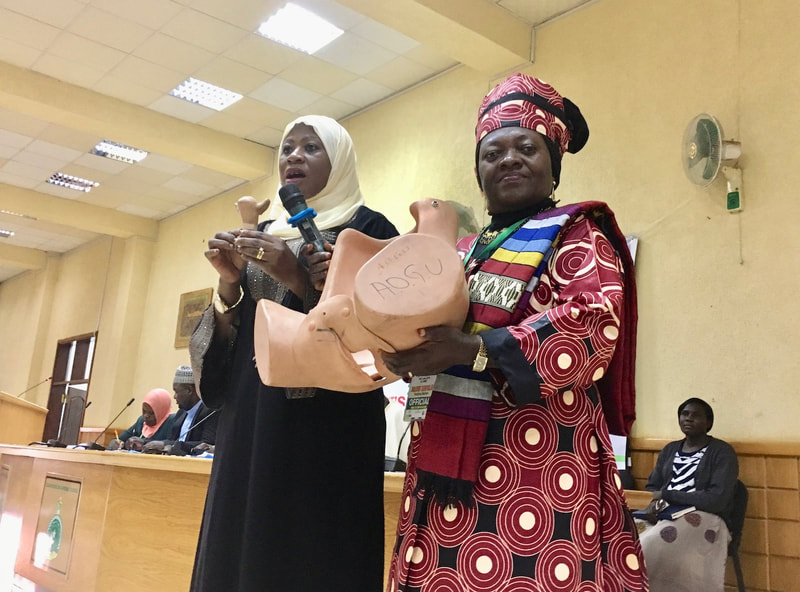
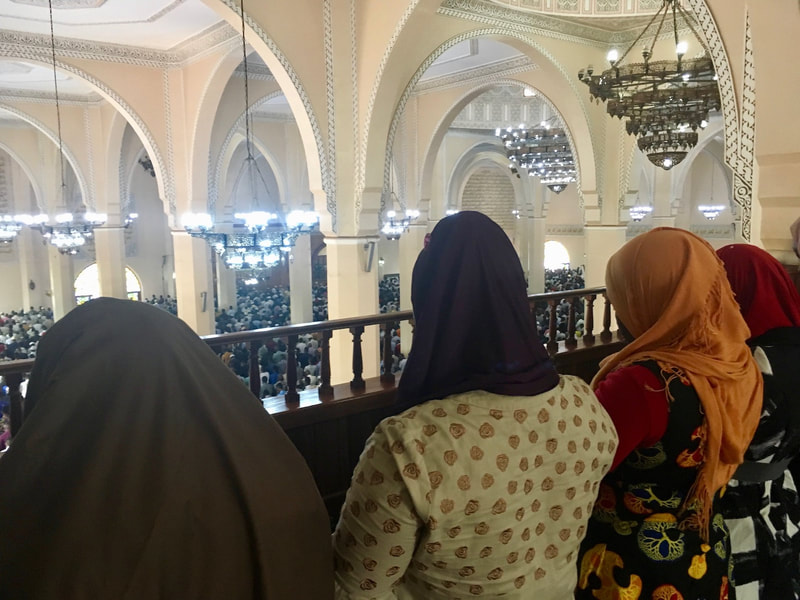
 RSS Feed
RSS Feed
